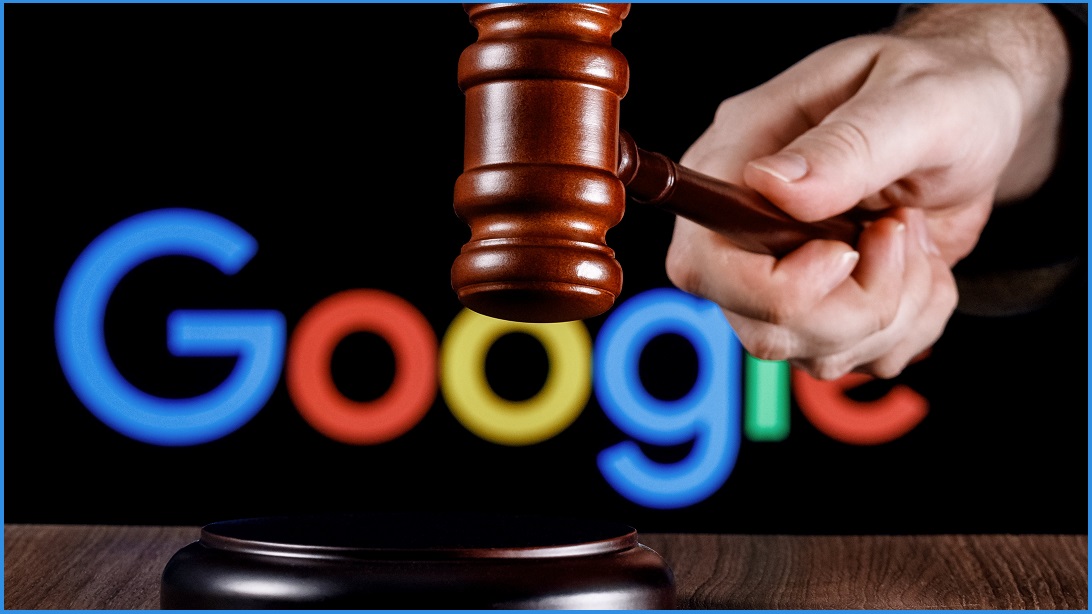Google “unlawfully” spends billions per year to ensure Apple, Samsung and other vendors favour its search engine over those of rivals, the US Government has argued, as a high-stakes 10-week trial sees the tech giant fighting to avoid being broken up for antitrust violations.
Arguing that no less than the “future of the Internet” was at stake in what is being billed as the tech industry’s trial of the century, prosecutors argued that the case – which began as a US Department of Justice (DoJ) complaint in late 2020 – “strikes at the heart of Google’s grip over the Internet for millions of American consumers, advertisers, small businesses and entrepreneurs beholden to an unlawful monopolist.”
Specific complaints address Google’s exclusivity agreements with companies that prevented them from preinstalling competing search engines like Bing and DuckDuckGo; ‘tying’ arrangements that made its search applications undeletable “regardless of consumer preference”; and “generally using monopoly profits to buy preferential treatment for its search engine… creating a continuous and self-reinforcing cycle of monopolisation.”
The exclusivity deal – defended as “standard” by CEO Sundar Pichai – reportedly saw Google pay Apple $1.5 billion ($US1 billion) to Apple in 2014, but this had increased to more than $15.6 billion ($US10 billion), DoJ lawyers said in laying out their case on the trial’s first day.
Google’s deal with Apple – which facilitated automatic Google searches when its Safari browser debuted in 2003, and extended the arrangement onto its iPhone and iPad mobile devices after their later release – mirrors agreements with firms like Mozilla, Samsung, and Verizon that made Google’s search engine the default in web browsers, search widgets, and other user interface elements.
The agreements have, the DoJ has argued in a case supported by 38 state attorneys-general, helped it “unlawfully maintain its monopoly power through a set of exclusive contracts” – helping it secure 90 per cent of the general search services market and 94 per cent of searches on mobile devices.
Given that no other company could outbid Google – and revelations that Google threatened to terminate the deal in 2007 after Apple proposed a screen that would let users choose Google or Yahoo! search engines – the DoJ alleged that “these and other anti-competitive practices harm competition and consumers, reducing the ability of innovative new companies to develop, compete, and discipline Google’s behaviour.”
Google also, the prosecutors allege, used its control of the search engine market to “weaken” specialised vertical providers (SVPs) such as travel, e-commerce and restaurant reservation providers – whose visibility in Google search engine results was actively “limited” even as Google demanded access to SVPs’ data for purposes such as embedding flight details in its search results.
“The weakening of SVPs… harms competition in the general search and general search-related advertising markets,” they claim, adding that Google also uses its proprietary SA360 search engine marketing tool “to thwart competition” by delaying the availability of “various product features” that allowed customers to buy ads on both Google and Microsoft’s Bing search engine.
High stakes for Google
The case comes at a critical juncture for Google, which is dealing not only with a simultaneous DoJ complaint over its advertising practices but an intensifying flood of penalties and regulations including a $6.83 billion (€4.34 billion) antitrust fine related to its Android operating system, and a $4 billion (€2.42 billion) European Union fine for breaching EU antitrust rules by “giving illegal advantage to its own comparison shopping service.”
Google, for its part, has argued that it dominates the market simply because its search engine is better.
“Bing and Yahoo! also pay Apple to be featured in Safari, and other rival services appear too,” president of global affairs Kent Walker said in calling the lawsuit “deeply flawed.”
“Our success comes down to the quality of our products,” he said, “not the quantity of our contracts. People don’t use Google because they have to – they use it because they want to.”
Regulators aren’t so sure: in Australia, the ACCC’s Digital Platform Services Inquiry – which will hand down its seventh report by the end of this month – has examined default search arrangements during its ongoing investigations, as has a second Senate inquiry announced last year.
The stakes in the current case are high as prosecutors beat the drum of divestiture, threatening to once again use the powers of the Sherman Antitrust Act of 1890 – which enabled the breakup of telecommunications monopolist AT&T in 1982 and nearly did the same to Microsoft in 1998 – for a “structural remedy” that could split Google from the Google Ad Manager suite that is so critical to its revenue base.
In the DOJ’s 2020 complaint, deputy attorney general Jeffrey A Rosen said “the Department is again enforcing the Sherman Act to restore the role of competition and open the door to the next wave of innovation – this time in vital digital markets.”
With breakups already on the tips of many US lawmakers’ tongues “a breakup may be a very effective remedy,” one analysis notes, “especially when the aim is to restore the competitive process and to prevent Google from (re-)engaging in similar anticompetitive conduct in the future.”










